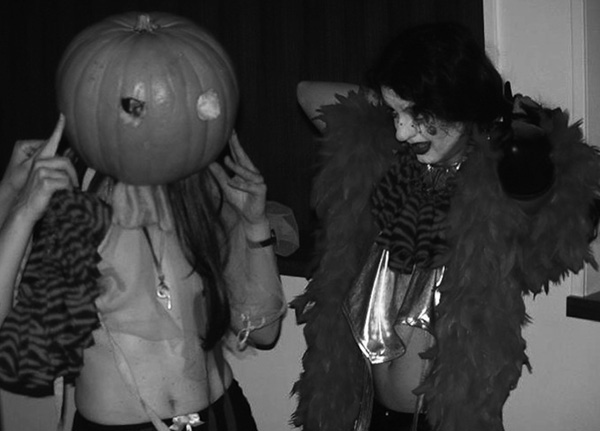
DON’T LOOK THE OTHER WAY
first performed on February 14, 2018
Limewharf, London, UK
performed once in 2018
SOFIA VARINO / DARA PARKS
Berlin, Germany / London, UK
291348338i291348338n291348338f291348338o291348338@291348338s291348338o291348338f291348338i291348338a291348338v291348338a291348338r291348338i291348338n291348338o291348338.291348338c291348338o291348338m
sofiavarino.com
DON’T LOOK THE OTHER WAY
SOFIA VARINO / DARA PARKS
In the context of gentrification and the closing down of a series of queer spaces in London (First Out, Candy Bar, and many others), Limewharf presented on Valentine’s Day 2018 a collective performance show titled “Goodbye to London/ This Dancefloor Isn’t Here Anymore,” to reclaim queer nightlife and reflect on the impact of gentrification on queer communities.
The Holy contributed with a reperformance mix of the lesbian/drag stage shows we did around London from 2003-2004 at several queer spaces and events that are now gone (and some that have survived, like Wotever). We interweaved reperformances of our acts “Kinky Clowns,” “Trick or Treat,” and “Don’t Look the Other Way” with short recollections of what it was like to perform then in London, and how we queered and gender-fucked the traditions of drag, burlesque, clowning, and striptease. During the performance, we interrupted the “Don’t Look the Other Way” track by Pleasure, to which we had performed on numerous occasions, and read aloud excerpts from the handwritten letters we’ve sent each other over the years. We also reminisced about the digital space of the Gingerbeer message boards for queer women, where we first met in 2003, and which functioned as a forum for online social interaction, networking and support, long before social media and dating apps. Aesthetically, the practice of interruption produced disorientation and estrangement, and during our reperformance the interruptions also functioned as interludes enabling improvised interaction with the audience, who riffed off our comments and provocations.
We sought to explore and test out re-performance as living archive, a strategy for documenting performances that have not been preserved or archived in any other format or medium; as a tool for historicizing community spaces and events, including digital platforms; and as a methodology for theorizing queer performance both as embodied event and as literary text. In the context of queer kinship, community, alternative family ties and activism, the “Don’t Look the Other Way” reperformance was a gesture of radical intimacy, bringing together multiple temporalities to question the notion of collective and personal histories as complete or vanished, opening up the unfinished business of the past as haunting and sustaining the present moment. Never forgotten, not forgettable, it is precisely the sticky persistence of the past that renders it capable of providing relevant insight for the urgent political action and consciousness that is so necessary today to ensure liveable queer lives in the future.